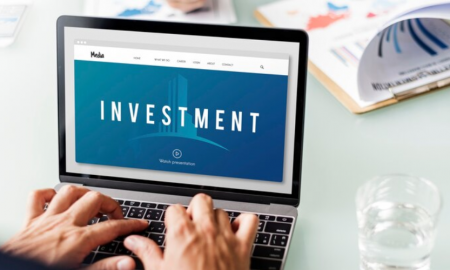
Three Key Rental Property Loans You Should Know About!


Whether you are making your investment portfolio a diverse one or building up a portfolio that can protect you against inflation. Your investment should also help you at times of a volatile stock market or you want to ensure a passive income stream. For all of the above, rental property loans are one of the best options you can explore.
However, you need to spend money to earn more money, and for that, you have several types of property loans to choose from, and a good real estate investor will help you get the best deal. Here are several financial options you can try to make the most of this investment portfolio.
Conventional Mortgage

The conventional mortgage is one of the most common ways to buy new investment properties. First, you need to pay a 20% down payment, which is a difficult proposition for people who are new to real estate investments.
Your credit score must also be more than 740 or more with affordable interest rates that won’t impact your profits. Also, ensure that you have enough liquid assets to have at least six months’ worth of payments.
It may be interesting to note that a standard mortgage happens to be one of the most cost-effective options compared to saving money or buying out real estate. You will start money as soon as you earn a rental property, and that extra cash flow will help you pay off the loan interest.
Private Money Lender

A private money lender is not what you can call a professional. Your loan resource maybe a friend, relative or business associate who will risk it out to help you. This type of lending depends entirely on trust. It may either involve paperwork or just a handshake deal. But even if you are borrowing money from a friendly resource, make sure you have everything in black and white. It may involve various formalities which need confirmation with the help of a written statement bank loan or private lender. Things can go awry if you end up losing the money on the deal.
The advantage of private money lenders is that it offers a certain degree of flexibility as far as repayment is concerned. Your lender may be willing to wait it out before you have the rental income to pay them back. In some cases, they may not consider interest rates as long as they get their investment back. However, if everything else works out, then a private loan is a perfect option when nothing else works out.
Federal Housing Authority (FSA) Loan

Conventional financing does not well for you if your credit score is not good enough. Or you may not make a certain amount of down payment, which disqualifies you for the loan. You may still get an FHA-backed loan.
FHA loans are particularly great options for first-time real estate investors. These US government-approved loans require much smaller down payments. They may be as low as 3.5%. The only disadvantage here is you will have to pay for mortgage insurance. This applies as long as there is 20% equity in your home.
The other disadvantages include, you may only seek a loan from FHA if you agree to reside in the property for 12 months and more.
This is all good if you happen to stay in a duplex or a multi-family unit that means you may reside in one part of the property while the tenants stay in the rest of the property. Once you start paying off the loan, your credit score will enjoy a substantial improvement. Once you start saving money from this loan deal, you can get help from conventional financing for your next investment property purchase.
Another disadvantage you may need to consider about FHA loans is that the property needs to be in a good, livable condition before the loan approval. If an inspector spots any loopholes, they may need the owner to settle them. This can make the negotiation procedure lengthy. This happens in the eventuality that the owner may prefer to sell it to another investor who does not need to cater to FHA requirements. You are only allowed one FHA loan at a time, but as soon as you build up your property equity, your purchasing power for the real estate will grow in the future.
More in Loans & Mortgages
-
`
Curious About Travis Kelce’s Net Worth? Here’s the Scoop!
Travis Kelce’s name echoes through NFL stadiums, synonymous with athletic prowess and electrifying plays. But beyond his touchdown celebrations and record-breaking...
June 10, 2024 -
`
Everything You Need to Know About an Assumable Mortgage
What is an Assumable Mortgage? Whether you are a buyer or a seller, understanding the concept of assumable mortgages can open...
June 6, 2024 -
`
Layoff vs. Fired – Understanding the Crucial Differences
When it comes to job loss, understanding the distinction between being layoff vs. fired is crucial. While both situations result in...
May 30, 2024 -
`
When Are Business Taxes Due 2024? Essential Dates and Deadlines
Tax deadlines can be daunting, but fear not! Let’s break down everything you need to know to stay on top of...
May 22, 2024 -
`
How Much Does Jeff Bezos Make Per Hour? It’s More Than You Think!
Jeff Bezos, a name synonymous with innovation and wealth, stands as one of the world’s richest individuals. While Bernard Arnault and...
May 16, 2024 -
`
What is Portfolio Investment Entity (PIE) and How Can it Benefit You?
In the intricate world of finance, individuals seek avenues to optimize their investments while minimizing risks. One such avenue gaining traction...
May 9, 2024 -
`
What is a Bank Statement? Understanding its Definitions, Benefits, and Prerequisites
Ever wondered where your money goes? A bank statement is like a financial report card, giving you a clear picture of...
April 30, 2024 -
`
Branded Content: A Genuine Way to Connect With Your Audience
Have you ever binge-watched a series on Netflix, only to later realize that the beverage everyone’s sipping on is that brand...
April 23, 2024 -
`
What Car Does Jeff Bezos Drive? Find Out Inside His Exclusive $20 Million Collection
Have you ever wondered what car does Jeff Bezos drive? This man’s tastes in vehicles are as expansive as his business...
April 17, 2024















You must be logged in to post a comment Login